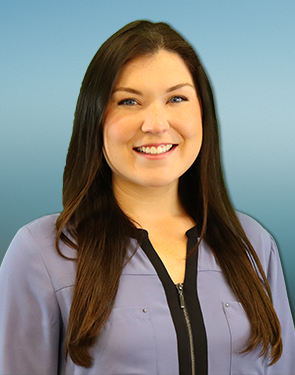Challenge Negative Self-Talk with Nutrition Counseling

Erinn Gregory, RDN
Nutrition Educator
NOAH Palomino Health Center
Nutrition therapy is an important part of the eating disorder treatment and recovery process. The role of therapy is to assist patients in normalizing their eating patterns. To treat eating disorders, a nutrition counselor can help a patient challenge and change the ways they think about food and their eating habits. These practices can boost positive thinking by helping to challenge a patient’s critical self-talk as well as any distorted emotions and behaviors. It is common in counseling to see individuals using their eating habits to help control stress and emotions. Others may determine their self-worth or self-esteem by their weight and shape. Some may see weight gain, weight loss or restriction as a way to feel good about themselves. For individuals diagnosed with anorexia nervosa, bulimia nervosa, or binge eating disorder, a response to stress or feeling anxious might be, “If I am stressed out, I will always binge eat.” This is what is called a “self-fulfilling prophecy” and can be a narrow, negative way of thinking. A way to reword the negative thought and turn it into a positive one instead, could be “I have the tools to help me when I am stressed. I can listen to music, call a friend, write in my journal, or go for a walk.” Seeing other options can encourage a shift to more positive thinking which can help in recovery.
Here are some examples of negative thoughts that can be restructured and reworded into more positive thoughts and actions:
“I can eat some food with fat. Fat contains fat-soluble vitamins and essential fatty acids. Eating fat does not mean I will get fat.”
| Negative Thought | Reframing/Restructuring |
|---|---|
| Black or white thinking (you are either perfect or a total failure) “I cannot eat any food with fat in it” |
|
| Catastrophic thinking (exaggerating the significance of one event) ”I usually eat a whole bag of candy. It’s hopeless. I’m always going to overeat.” |
“I usually eat a whole bag of candy. This time I ate only half. I am making progress.” |
| Pessimistic thinking (seeing only the negatives and assuming the worst.” “If I got out to eat there, I will eat everything on the menu.” |
“I can order just enough to feel satisfied. I can stop eating at moderate fullness.” |
| “Should” Statements (having a rigid set of rules “I should eat only salad at every meal” |
“I will be hungry if I just eat salad. I need protein and other nutrients to feel satisfied.” |
| Overgeneralization “All carbohydrates are fattening” |
“No one food makes me fat.” |
| Mindreading (assuming people are thinking the worst about you) “If I eat in front of them, they will judge the type and amount of food I am eating.” |
“There is no evidence that anyone is really looking at me or what I am eating. If they do judge me it’s about their issues with food, not mine” |
| Discounting (can’t accept positive feedback) “People tell me I look healthy but I feel fat.” |
“I do feel healthy and have energy. Feeling fat is not about how I actually look.” |
The integrative approach practiced at NOAH helps the patient so that they are able to see not only a Registered Dietitian but also a behavioral health counselor, where they can practice rewording or “reframing” the critical self-talk. The more those negative beliefs and distortions about body image, diet, and restriction are challenged through therapy and corrected over time, those beliefs lose their power and help to ease anxiety and move a patient closer to recovery.
NOAH is an integrated health care facility with primary medical care, pediatrics, internal medicine, dental, psychiatric, behavioral health, and nutrition services. NOAH providers can assess and help formulate a treatment plan that addresses holistic needs of individuals with eating disorders. If you have concerns that you or a loved one is struggling with an eating disorder, please schedule an appointment with one of our providers and discuss your concerns.
Source: Nutrition Counseling in the Treatment of Eating Disorders; Herrin, Marcia & Larkin, Maria; Routledge, 2nd edition. December 5, 2012.





